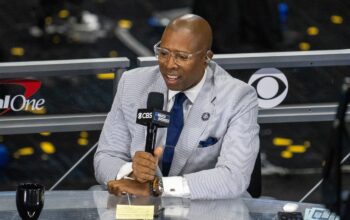The graduates, their parents and even the faculty didn’t know his struggle to overcome his reading affliction.
That day Richard stood six foot three. His muscular frame weighed near 300 pounds. In that football stadium he looked more like a NFL lineman than a Doctor of Philosophy graduate.
Dr. Morgan was an African-American wearing a cap and gown. When he walked across the stage, he received a wow reaction from the University of Carolina graduates and their parents sitting in the stands.
I remember well because that was the day I retired and became Professor Emeritus. I wore my cap and gown and marched into the Chapel Hill stadium to the cadence of “Pomp and Circumstance.”
This commencement occasion was also memorable because I attended few commencements during my ’67 through ’99 teaching years. Commencement weekends conflicted with sailboat racing. I also skipped my own UNC 1972 PhD graduation to watch my oldest daughter Sheryl graduate from Abilene Christian University.
Richard Morgan’s graduation was also special. He was an Army veteran, father of two teenagers, widowed the year before he graduated. And—after I asked him why he made so many pencil marks on a Massachusetts Institute of Technology computer simulation manual—he confided he was dyslexic.
.sdrawkcab siht daeR
When you see words backwards, reading requires rigorous concentration. Writing a dissertation also becomes more challenging.
That year Richard employed a MIT computer program and viewer audience research data to simulate when a majority of the television audiences would prefer cable to network viewing. His prediction missed by only five months. Computation was easier for him than writing words that appeared backwards..
Dr. Morgan went on to teach in his hometown Savannah Georgia. He often adds this quotation to our correspondence:
“Be Ashamed to Die Until You Have Won Some Victory for Humanity.”
~ Horace Mann, The Father of American Public Education.
Image by Gerd Altmann from Pixabay



